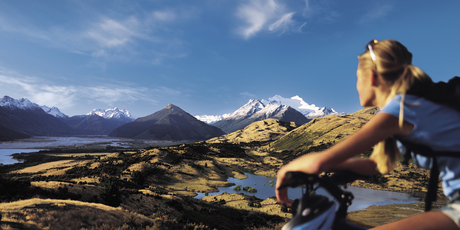
The bottom appears to have fallen out of the environmental bottom line.
Ten years ago the corporate world was being encouraged to add "environment" to company annual reporting and talk about initiatives to do with sustainability and biodiversity enhancement. Triple bottom line accounting - financial/economic, social and environmental. It was trendy. It felt good then; not so good now.
Economy and ecology are connected big ideas out of the same etymological stable. But at times of economic constraint - like the present - you don't hear much about that other "eco" word. For a country that boasts "Clean, Green" and "100 per cent Pure" spin in overseas promotion, you would think ecology and the environment would be agenda toppers.
But no. Lip-service is about as good as it gets. Natural capital hasn't looked so vulnerable in decades. Natural capital - clean water and air and healthy soil - is the basis of ecology. The environment is as important as the economy and the next generation will not thank us for degrading or reducing resources and limiting options for sustainability.
The Government is going flat out to increase extraction - from inshore oil to offshore fish to any mineral worth an export dollar. Just about everywhere you look, it is sounding like an ideological retreat from sustainability.
To disguise what it is doing, the Beehive has ordered the Ministry for the Environment to abandon the five-yearly State of the Environment round-up report, our 100 per cent Pure reality check.
At the same time, resource management legislation is going soft. The Government seems to want to irrigate till the cows come home, never mind instream or aquifer ill-effects.
Government action on climate change is backtracking. New Zealand, on this topic, was once a mover and shaker among the so-called developed nations. At this month's Qatar talks, we sat on our hands, head down.
At home, radical restructuring at the Department of Conservation is creating massive uncertainty. It looks like DoC's world-leading expertise in nature conservation will be required to pay its own way through private-sector sponsorship - or pack up.
Among the OECD nations, New Zealand is an oceanic standout. We should be a world leader in marine science, sustaining fish stocks, looking for ways to combat acidification, bending over backwards to protect seabirds and marine mammals from fishing impacts, and working out what to do with the New Zealand nationals who live on atolls in Tokelau and the Cook Islands threatened by sea-level rise. It's coming.
Instead, we dish out permits to overseas companies to look for deep-sea oil in our waters. Instead, we permit large trawlers to fish for squid in the feeding grounds of the "nationally critical" New Zealand sea lion - a fishing regime based on a discredited if not shoddy scientific model.
Then there is the Ross Sea affair. It's Antarctica. Should we care?
At a recent conference of the international agency overseeing fisheries' sustainability below latitude 60 degrees south, there was a chance to protect the world's least-polluted, least-fished large stretch of ocean 2000km directly south of New Zealand. New Zealand, at one time a champion of nurturing the high seas (saving whales, opposing drift nets and so on), was in two minds, prevaricating over whether or not to collaborate with the United States on a joint proposal to protect the Ross Sea. A prized fishery was at stake - Antarctic toothfish.
Reluctantly it seemed, we came around to the idea of partial protection of the Ross Sea, and this joint proposal with the United States will be presented again to the 25-member agency in Germany next July.
Meanwhile, at home, government decisions continue to undermine the environment.
The really sad fact is that, from industrial emissions to toothfish and many other indicators, we are no nearer the sustainability goal, no nearer even to finding ways of measuring progress. The environmental component of triple bottom line accounting is waning.
Neville Peat is a Dunedin writer on geography, natural history and the environment, and a former Otago regional councillor.
